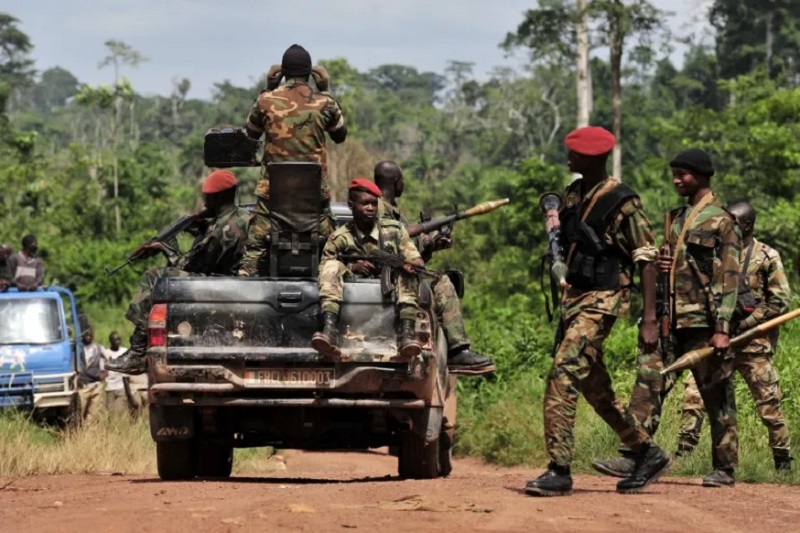Last updated on January 7th, 2023 at 08:13 am
According to a statement released by the Malian presidency, the country’s military chief has granted amnesty to 49 troops from the neighboring country of Ivory Coast. These soldiers had been detained in July and suspected of working as mercenaries. After landing in Bamako, the capital of Mali, the 49 were taken into custody. Ivory Coast’s government stated that the troops were contracted to work for a private company that had been awarded a contract to provide security services by the United Nations while they were stationed in Mali.
A diplomatic row has broken out between Mali and the Ivory Coast as a result of the arrests of the troops and the charges brought against them. Colonel Abdoulaye Maiga, a spokesman for the Mali government, said in a statement that the president of Mali, Colonel Assimi Goita, had granted a pardon and that this “shows once again his commitment to peace, dialogue, pan-Africanism, and the preservation of fraternal and secular relations with regional countries, especially those between Mali and Ivory Coast.”
Goita took control of Mali through a series of coups. The first one happened in 2020, and the second one happened the following year, when the president and prime minister of the transitional government were removed from their positions.
The general amnesty was granted a week after 46 of the Ivorian troops were given sentences ranging from 10 to 20 years in prison. Three more defendants were given the death penalty. All of them were women who had been released from jail in September but were tried without being there.
According to a statement made by the public prosecutor Ladji Sara at the time, the 49 individuals were found guilty of carrying out an “attack and conspiracy against the government” as well as attempting to undermine state security. The court proceeding began on December 29 in the nation’s capital of Bamako and continued through the following day.
Related Posts
After the Ivorian soldiers were taken into custody, the United Nations sent a memorandum to the Malian government in which it admitted to some procedural “dysfunctions” and stated that “some steps have not been followed” in regard to the deployment of the Ivorian soldiers to Mali. In September, the Ivorian presidency said that there had been “shortcomings and misunderstandings” about the deployment of Ivorian troops to Mali.
The move was described as an “independent decision” in the statement that was released on Friday to announce the pardon. The statement also indicated that the president is committed to good governance and “preserving fraternal relations” with the countries in the region, particularly with Ivory Coast. There was no indication of when the soldiers would be released from jail.
The Ivorian administration did not make its representatives immediately accessible for comment. In the past, it has claimed that its soldiers are being held as hostages and has pleaded over and over again for their freedom. The Ivorian authorities had previously issued a warning that “consequences” would follow the “hostage-taking.” Since military officers overthrew the government in 2020 and failed to deliver on election promises, Mali has been subjected to sanctions from the main political and economic bloc in West Africa, the Economic Community of West African States (ECOWAS). This has caused Mali to become increasingly isolated (ECOWAS).
This year, several nations, including the Ivory Coast, have made the decision to remove troops that were sent to help combat an uprising that has been going on in Mali for a decade. The reason for this decision is the military government’s collaboration with Russian mercenaries. ECOWAS has also threatened to impose additional sanctions on the country if the Ivorian soldiers are not released, and the government of Mali has become increasingly hostile toward ECOWAS in recent years.
On Thursday, Togo’s President Faure Gnassingbe, who was acting as a mediator throughout the conflict, met with Mali’s President Ibrahim Boubacar Keita in Bamako before traveling to the Ivory Coast. Gnassingbe was honored by the Malian government in a statement released on Friday. The statement hailed him “for his relentless work and constant commitment to dialogue and peace in the area.” In addition, the “aggressive position” taken by ECOWAS’s chairman, Umaro Sissoco Embalo, was criticized in the statement.

